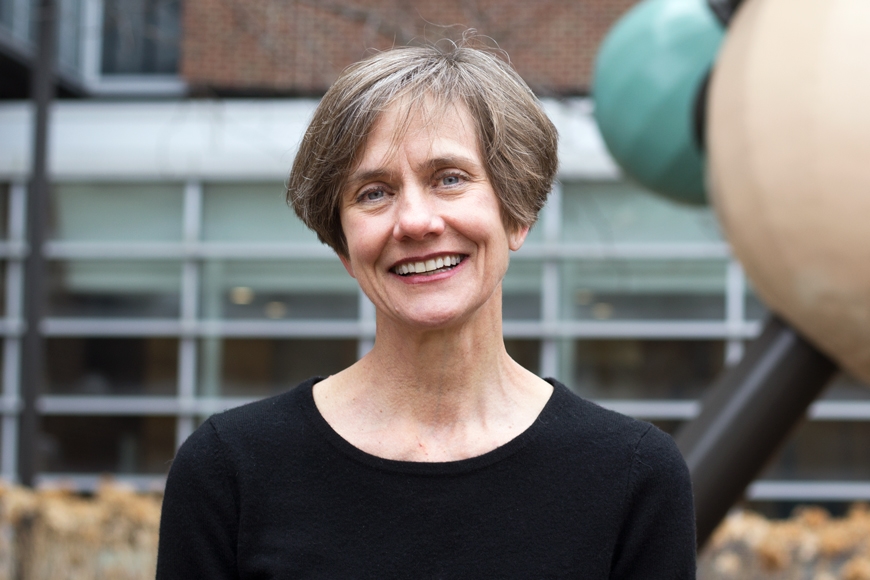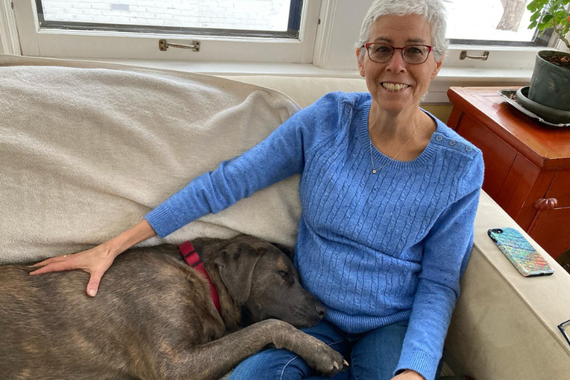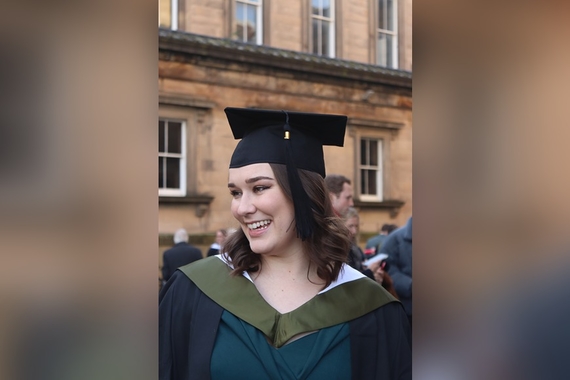Celebrating Susan Craddock: Over 20 years of UMN Academic Excellence
Professor Susan Craddock will retire from the UMN Institute of Global Studies at the end of May, after teaching in the department since 2001.
“I think I’m going to miss the students the most, and working here at Global Studies,” Craddock said. “Working in a place where you hear laughter and a lot of convivial conversation going on during the day… it’s been great. A wonderful environment here.”
Craddock was the fourth professor hired in the Institute of Global Studies, playing an integral role in the department's development since its early days, said IGS director Evelyn Davidheiser.
“She was always one of the most reliable and most vocal proponents of Global Studies, in building the Institute,” Davidheiser said.
A look back
Craddock spent most of her UMN career as a professor in the Institute for Global Studies and the Department of Gender, Women & Sexuality Studies. The majority of her courses focused on the intersections between health and social justice.
On top of classroom instruction, Craddock also prioritized mentoring undergraduate students. She welcomed those wanting to assist in her professional research, supervised those pursuing individual scholarly projects, directed students through capstone courses and wrote countless recommendation letters.
During her time in academia, she said she mentored “at least 300 students, maybe more than that.”
“I love guiding students to do what they're passionate about. That, to me, is kind of what this is all about,” Craddock said. “And mentoring is also talking about what’s next. Whether it's undergraduates wanting to go into graduate school or for jobs. Global studies students in particular do lots of really interesting things after they graduate. And, of course, I'm thrilled to help them do that.”
Research that looks at the root
Throughout the last two decades, Craddock has also contributed a wealth of research to her field. Her scholarship has centered around patterns of global health, specifically the root causes of socioeconomic disparities in the spread of infectious diseases.
“Whether it's tuberculosis, influenza or COVID, there is an uneven distribution of infectious diseases,” Craddock said. “More attention needs to be paid to the question, ‘what exactly makes for that unevenness?’ It’s not enough to say, ‘well, it’s about poverty.’”
Craddock, as a social scientist, has responded to this question by investigating international institutions, laws, and regional policies that reinforce social, economic, geographic, and political inequities.
“My last project was looking at the organizations that were trying to make new, better, more humane, and more accessible drug regimens for those with tuberculosis or at-risk for tuberculosis, and a better vaccine than the only vaccine that we have for TB, which is largely ineffective,” she said.
In addition to scholarly work, Craddock has supported IGS in an administrative role, Davidheiser said. She has acted as the department’s associate director for the last three years, helped create a student advisory group, and led the department’s self-study for an academic program review.
“She’s one of these people that’s been committed to the project of Global Studies since the beginning,” Davidheiser said. “It’s hard to imagine Global Studies without her.”
What's next
Although her time at UMN is coming to a close, Craddock is still looking toward the future of her field at the University.
“I would just love to see teaching global health continue, and health and social justice,” she said. “Obviously, I am biased, but I do think that [global health and equity] is such an important optic onto the many things that are wrong with our world.”
Craddock added that she would like to see more community-engaged learning opportunities in health equity courses because they enrich students’ understanding of class topics. Plus, she said, “Students love it.”
As she prepares for her departure from academia, Craddock is also looking toward her own future. She’s excited to further explore her hobbies, such as biking, hiking, gardening and reading.
In true Global Studies form, she also plans on doing volunteer work and traveling the world with her husband.
“I love animals, so I’m thinking of working for humane societies that rescue cats and dogs,” Craddock said. “And my husband and I love to travel. He's working three days a week for the next year, and then he's also retiring. So we definitely have plans to do a lot of traveling.”
Whether she’s in Minnesota, Europe, the Middle East, or another place on her itinerary, the Institute of Global Studies wishes Susan safe travels and thanks her for an outstanding 22-year commitment to academic excellence at UMN.



